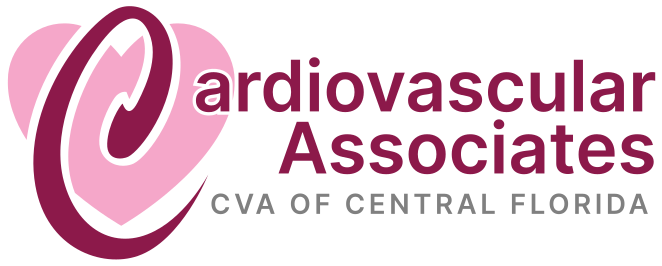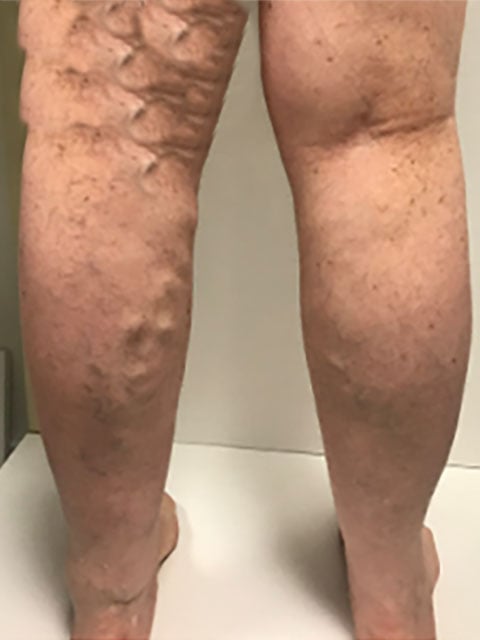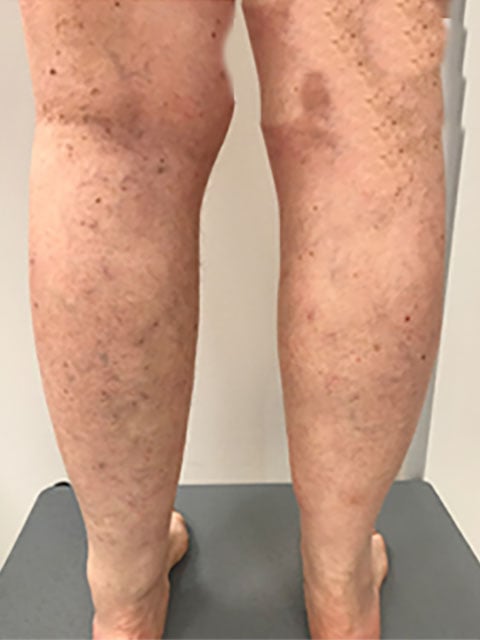Understanding Peripheral Vascular Diseases
Peripheral vascular diseases (PVDs) are a range of disorders that affect the blood vessels outside the heart and brain. These conditions can significantly impact circulation, leading to discomfort, pain, and potential complications. Proper understanding, timely intervention, and expert care are vital in managing PVDs effectively.
Peripheral Vascular Diseases
Peripheral vascular diseases (PVDs) encompass various disorders affecting the intricate network of blood vessels outside the heart and brain. This includes the arteries, veins, and lymphatic vessels supplying the arms, legs, stomach, pelvis, and organs.
PVDs arise due to vessel damage, blockages, or compression that disrupt normal blood circulation. This can cause tissues to be deprived of vital oxygen and nutrients, swelling, and/or pain. PVDs can manifest with various symptoms ranging from mild to debilitating.
Catching PVDs early provides the best opportunity to stop disease progression and prevent catastrophic complications. Lifestyle changes, medications, or minimally invasive treatments can significantly reduce the detrimental effects of PVDs. Promoting public awareness and prompt specialist evaluation for emerging symptoms are vital steps in mitigating the systemic impact of peripheral vascular disease.
The Rising Impact of Peripheral Vascular Diseases
Peripheral vascular conditions (PVDs) are a growing problem in the United States. According to the American Heart Association, more than 20 million adults in the United States have peripheral artery disease (PAD), and more than 30 million adults have chronic venous insufficiency (CVI). Several factors contribute to the rising impact of PVDs. These factors include:
- The aging population
The number of people in the United States aged 65 and older is expected to more than double by 2060. As people age, they are more likely to develop PVDs. - Increased rates of obesity
Obesity is a significant risk factor for PVDs. The prevalence of obesity in the United States has more than doubled since 1980. - Increased rates of diabetes
Diabetes is another significant risk factor for PVDs. The prevalence of diabetes in the United States has more than quadrupled since 1980. - Smoking
Smoking is a significant risk factor for both PAD and CVI. The prevalence of smoking in the United States has declined in recent years, but it remains a significant public health problem.
When To See a Cardiovascular Specialist for Peripheral Vascular Diseases
When it comes to your vascular health, timely intervention is crucial to ensure the best possible outcomes. If you are experiencing any of the following symptoms or conditions related to peripheral vascular issues, it's essential to seek consultation with a cardiovascular specialist as soon as possible:
- Persistent Leg Discomfort
If you are consistently experiencing leg pain, cramping, numbness, or tingling, it could indicate an underlying vascular problem. Don't dismiss these symptoms as part of aging – they may require attention. - Visible Skin Changes
Skin discoloration, ulcers, or persistent wounds on your legs could be signs of vascular insufficiency or venous ulcers. Prompt assessment and treatment are important for reducing the risk of complications. - Swelling in the Legs or Feet
Unexplained swelling in your legs or feet may indicate poor circulation or other vascular issues. A cardiovascular specialist can diagnose the cause and recommend appropriate interventions. - Restless Legs or Leg Itching
If you are constantly experiencing the urge to move your legs or are troubled by itching or burning sensations, it's worth consulting a specialist to identify the underlying cause. - Aesthetic Concerns
If you have concerns about the appearance of your legs due to varicose veins, spider veins, or other vascular issues, a cardiovascular specialist can help address medical and cosmetic aspects. - Pelvic or Lower Back Discomfort
Pelvic pressure, lower back pain, and discomfort may be related to vascular issues such as venous congestion. Seeking evaluation can help determine the cause and appropriate treatment. - Non-Healing Wounds
If you have wounds on your legs that are not healing as expected, it could be due to compromised blood flow. Consulting a specialist can lead to effective wound management and improved vascular health. - Risk Factors
If you have risk factors for peripheral vascular diseases, such as a family history of vascular problems, smoking, diabetes, high blood pressure, or obesity, it's wise to seek regular assessments to catch issues early. - Decreased Mobility
If you notice a decrease in your ability to walk, exercise, or perform daily activities due to leg discomfort or pain, a specialist can help identify and manage the underlying cause.
Peripheral Vascular Diseases We Treat
Our experienced medical team is dedicated to providing comprehensive treatment for a wide range of peripheral vascular conditions. We specialize in diagnosing and managing various symptoms and disorders, including:
- Peripheral Arterial Disease (PAD)
PAD restricts blood flow to the legs, leading to symptoms like leg pain, cramping, and reduced mobility. Our interventions aim to improve circulation, alleviate discomfort, and prevent complications. - Deep Vein Thrombosis (DVT)
DVT is characterized by blood clots forming in deep veins, often in the legs. Our approach includes anticoagulation therapy and preventive measures to reduce the risk of complications like pulmonary embolism. - Swelling in the Legs or Feet
Swelling can indicate venous insufficiency or lymphatic disorders. Our treatments focus on alleviating swelling and improving circulation.
Photo Gallery
Video Gallery
Testimonials
Dr. Mathias is a good communicator and makes sure you understand his prognosis.
He thinks out loud. I literally have to trust him with my my life and it helps that he doesn’t rush your appointment.
He’s the best!
Dr Mathias is not only very knowledgeable and the best in cardiac catheterizations that are challenging, but he remembers every detail of my cardiac history and managed my post-Takotsubo event wonderfully! He listens and will answer all questions with research studies and teach.Dr. Massey is a very good Cardiologist.
Dr. Massey is a very good Cardiologist, has years of experience and very caring. I have no problem with the clinic.Wonderful, kind, and compassionate.
Very polite. Dr. Kumar is thorough. Genuinely concerned about his patient. Reviews all information and answers questions. Wonderful, kind, and compassionate. Highly recommend.I feel confident about the care he provides to me.
Dr. Kim is so good at explaining test results and how it impacts my condition. He explains changes in medication and spends time teaching about my heart condition, medications and signs to look out. I feel confident about the care he provides to me.
I’m very appreciative of having CVA on my side.
Dr. Thomas Kim has been cardiac guardian since day one, back maybe 10 years. He takes as much time as needed, and I’m an active participant of my treatment. I send him messages through portal and get taken care of promptly. The office doesn’t always manage coordination effectively, but it’s not the physicians. My visits don’t take more than 30 min.The doctor was thorough and knowledgeable.
This office was well organized, equipped, and ready for the visiting patients.
Everyone was polite and helpful.
The doctor was very helpful, the doctor read each of my results and made sure I understood.
Photo Gallery
Meet Your Illinois and Iowa
Cardiovascular Physicians
In Search of Care? Request a Consultation Today

Your Cardiovascular Wellness Starts Now
Find a Cardiovascular Specialist Near You
Don't let peripheral vascular diseases affect your well-being. Our cardiovascular specialists are here to diagnose, treat, and manage these conditions to help you lead a healthier, more comfortable life. With several conveniently located office sites, you can access top-tier cardiovascular services close to home.





